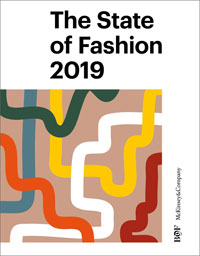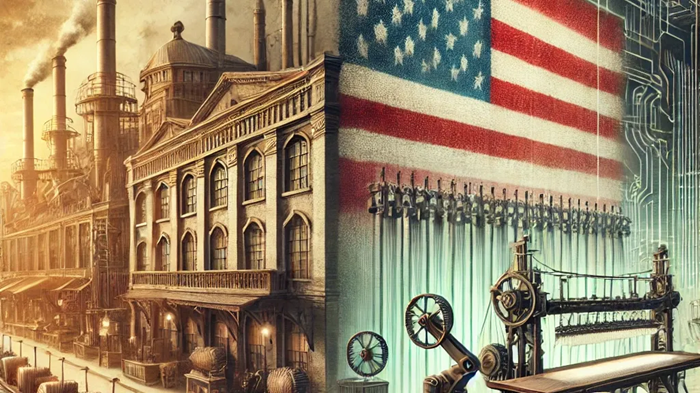"McKinsey & Company in its State of Fashion 2019 report had stated the trend towards personalisation is gaining speed. Driven by the benefit of reduced lead times, this trend will be led by small-scale players and a new generation of customised clothing start-ups who will create a new definition of ‘made to measure’ by taking up on-demand production."
 McKinsey & Company in its State of Fashion 2019 report had stated the trend towards personalisation is gaining speed. Driven by the benefit of reduced lead times, this trend will be led by small-scale players and a new generation of customised clothing start-ups who will create a new definition of ‘made to measure’ by taking up on-demand production.
McKinsey & Company in its State of Fashion 2019 report had stated the trend towards personalisation is gaining speed. Driven by the benefit of reduced lead times, this trend will be led by small-scale players and a new generation of customised clothing start-ups who will create a new definition of ‘made to measure’ by taking up on-demand production.
For personalised looks and fits
Céline Choussy, Chief Marketing and Communications Officer for Lectra says, personalisation could solve a host of challenges currently facing the apparel market. It could minimise returns and markdowns on inventory and stores, making it a profitable business. However, the current apparel industry is ill-quipped to capitalise on this opportunity. Built on a massive scale, most apparel chains do not have the set up for one-off garments.
To tackle this challenge Lectra developed a new cloud-based platform known as Fashion on Demand. The platform is designed to harness machine learning and the IoT to digitise and streamline everything from orders to cutting. It is suitable for businesses planning to create capsule collections through those ready to scale personalised offerings. With Made to Order package, brands can create small series of standard products. Made to Customise allows for customisation of patterns and design elements, and Made to Measure provides for truly personalised looks and fits.
platform is designed to harness machine learning and the IoT to digitise and streamline everything from orders to cutting. It is suitable for businesses planning to create capsule collections through those ready to scale personalised offerings. With Made to Order package, brands can create small series of standard products. Made to Customise allows for customisation of patterns and design elements, and Made to Measure provides for truly personalised looks and fits.
Automated processes compensate human skills
The platform is designed to give the whole team visibility into the process and the right data to make decisions. The production process at this platform begins with the order manager, which can automatically pull orders from companies’ ERP systems and place them into the production queue. The materials manager then takes information either entered manually or through and ERP and creates editable markers, which are sent to the cutting machine. Finally, the system manager controls offloading, picking and bundling workflows to optimize efficiency, limiting the manpower needed in the cutting room.
The automated tasks compensate for skills like marker making. It gives fashion brands more confidence in their workflows besides providing them with a process security as it does not involve human intervention especially in matched fabrics. This also reduces human errors in the process takes non-values added tasks out of the operation.
Shorter lead times and quick alterations
Ultimately, automation shortens lead time and its digital processes also enable easy alternations. Through this platform, brands can also create small series, limited editions and quick assortments. It allows brands to be very reactive and adapt their collection to their consumers’ needs. This is exactly what makes personalisation effective for brands and increase the loyalty of their customers.












